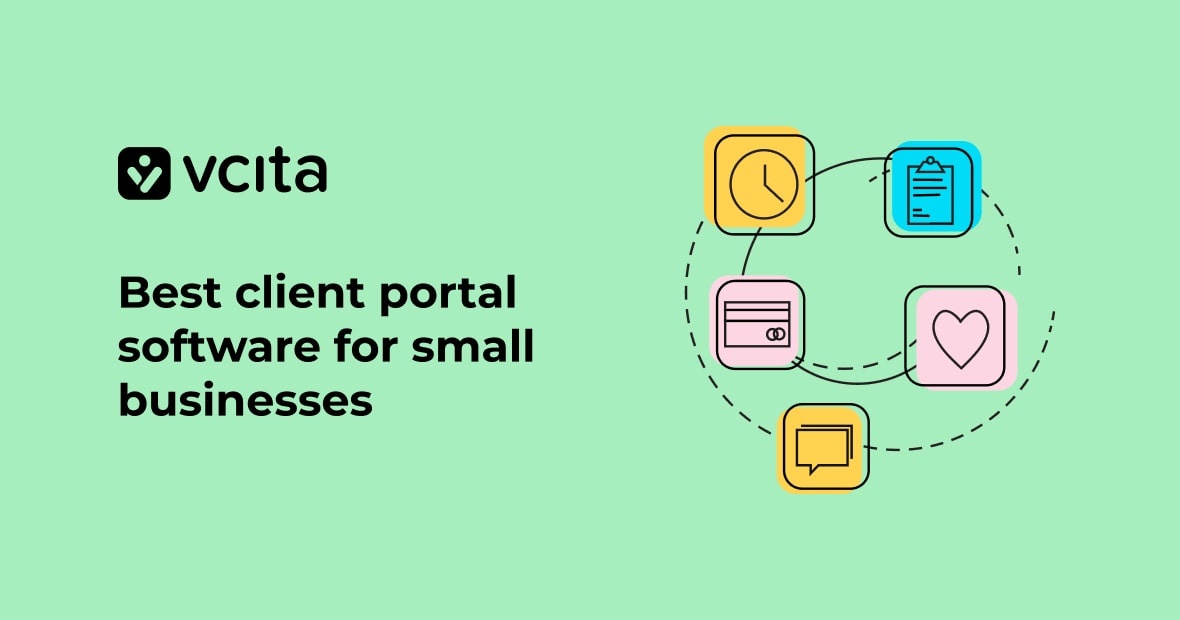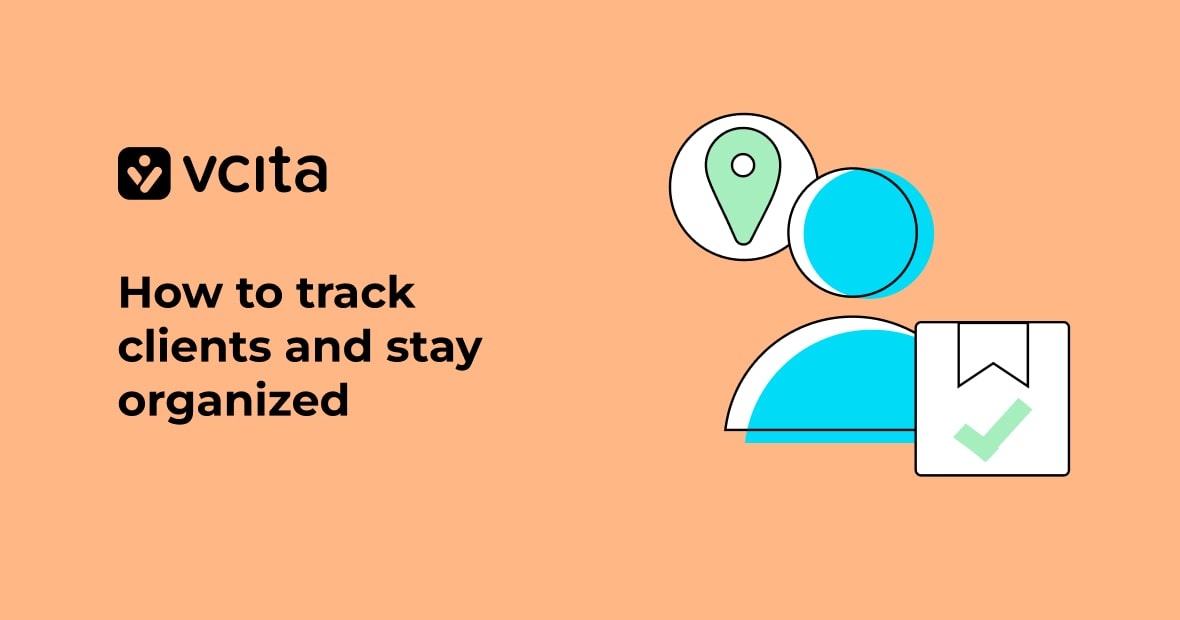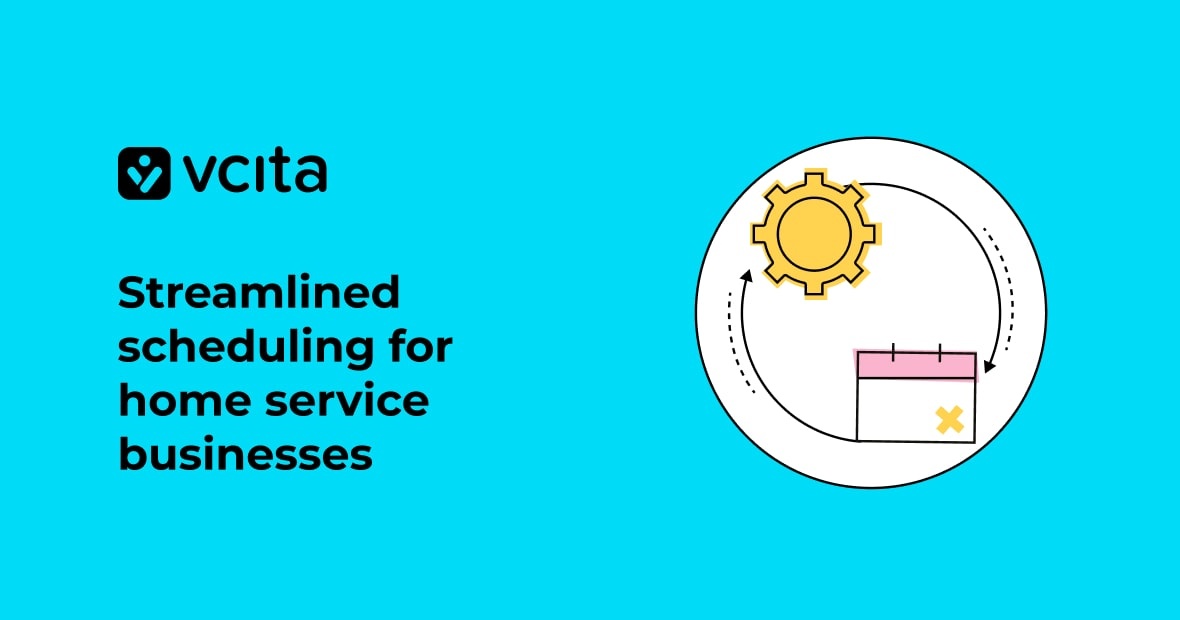Here at vcita, we’re not afraid to stir the pot.
That’s why we’re bringing up the age-old question that always gets small business owners talking:
Does your small business really need a website?
To some, the answer might be a resounding “Duh!”
But according to recent research compiled by Blue Corona, one-third of small business owners currently don’t have a website. Meanwhile, only 50% of business owners actively use their site to market themselves.
On the flip side, the SEO experts at Moz note that having a website is absolutely essential for search engine rankings and reaching local customers.
In this post, we’ll help you understand whether or not you need a website and show you how to build trust and revenue if you decide to go website- free.
So, to website or not to website? That is the question.
Let’s Be Clear: There is No “Right” Answer Here
Whether or not you need a website depends on quite a few factors. Everything from your type of business to what your competitors are doing will influence whether or not you need a site.
That’s why we broke down the ups and downs of each scenario below.
The Case for Building a Website
For starters, let’s look at the case for having your own site as a small business owner.
1. Credibility
The mere act of having a website is a way to position yourself against your competition. Let’s say you have a sleek site that looks like a million bucks and your competitors have, well, nothing. By simply having a site, you set yourself apart from the crowd.
2. Scoring valuable search engine traffic
Fact: 97% of consumers use search engines to search for businesses. Without a website, it’s next to impossible to rank for the keywords that your leads will be looking for (think: “Chicago nail salon”).
3. Not everyone is active on social media
Although Facebook alone boasts over 2.41 billion active users, not all of your clients and customers are going to be social savvy. If you serve clients that are 50 or older, Facebook is the only network your customers are likely to be active on according to recent social media demographics.
4. Social media is a “pay to play” fairground
It’s well-documented that non-paid reach on Facebook has been rapidly dropping for business profiles. Translation? If you want your page or Facebook content to be seen by your target audience, you’re likely going to have to invest in Facebook ads. No free lunch in social media, folks.
5. Better customer insights and analytics
Unlike a website that you can connect to Google Analytics, there’s not a ton you can learn from native social media metrics. Conversely, your website can clue you in on where most of your customers are coming from, what keywords they’re searching for, and how many folks are finding you in the first place.
6. Your website is, well, yours
When you have a website, you fully own your content. On Facebook and Instagram, that ownership is totally up in the air. Facebook’s frequent changes to their algorithm, features, and policies make the platform somewhat unpredictable. What happens if you get locked out of your account? What if you suddenly lose your reach? Vicky Etherington puts it best: “[Using social media] is a little bit like setting up a shop in someone else’s space without a rental agreement”. Right on!
7. You get to tell your story on your terms
Social media platforms have their own prearranged structure and design. Like it? Good! Don’t like it? Sorry but that’s the way the cookie crumbles. That said, there’s one place where you have total freedom to put whatever you want in whichever format you choose and that’s your website.
Want a dedicated page for testimonials or bookings? A website can make it happen versus social channels where features and formatting can be restricted.
The Case Against Building a Website
As noted, there’s a good chunk of small business owners who’ve decided to forego traditional websites and instead stick to social media. Why, though?
1. Going site-less is a growing trend
Simply put, small business websites are on the decline in general. Most of what we do online stems from social media in terms of the sites we visit and the content we consume. As a result, businesses understand that having a defined social presence can serve as a replacement a to traditional site and that’s why publications like Forbes now claim that websites, as we know them, are dead.
2. Social media is a great stopgap solution
Through platforms such as Facebook, you can attract customers, win bookings, and curate reviews just as you would on a normal website. Although your marketing strategy might be different, the fact remains that the majority of businesses use social media to supplement their sites anyway.
3. Social media is (technically) free
Apart from ads, setting up a social account for your business costs absolutely nothing. Even budget-friendly build-a-site platforms like Squarespace and Wix involve fees that could put businesses on a shoestring budget in a crunch. Similarly, domains and hosting costs can set you back a pretty penny.
4. Websites are a passive asset
Unlike social media where customers are constantly present and active 24/7, your website is a dinosaur that people visit only if they have to.
In other words, people are typically only landing on your site if they’re in your local area and searching for specific keywords (think: “caterer in Raleigh NC”). Otherwise, your site is a ghost town. Social media, on the other hand, is always “on” and allows you to get in touch with your customers on a daily basis.
5. Websites need constant care to stay relevant to search engines
Despite popular belief, creating a website isn’t a one-and-done project: it’s an ongoing investment. Without fresh content such as blog posts combined with some sort of SEO strategy targeting keywords, your Google rankings will likely be sub-par. Driving traffic to your site then becomes a matter of either paying for Google ads or Facebook ads. Either way, you pay.
6. Social media requires little technical know-how
Setting up a business account on Facebook or Instagram can be done in a matter of minutes by pretty much anyone. On the flip side, gathering the assets and optimizing your site requires knowledge of HTML, SEO, and third-party plug-ins. These elements of building a site aren’t necessarily rocket science, but they do involve a learning curve.
7. Social media’s built-in features are awesome for small businesses
Platforms like Facebook boast a ton of baked-in business features that empower you to interact directly with customers. For example, Facebook allows you to go back-and-forth directly with customers, curate customer content, score reviews and accept bookings all within one platform.
Again, it’s absolutely possible to run a thriving business without a site. Local businesses like Mission Taco Inc have managed to build a rabid base of foodie fans that are able to quite literally follow their favorite food truck thanks to social media alone.
For example, they manage to use Facebook as their business’ central “hub,” including contact information, reviews, and regular updates.
Meanwhile, they supplement their business Facebook page by posting customer photos and event snapshots on Instagram. See how that works?
How to Grow Your Business When You Don’t Have a Website
Let’s say you’re still undecided or have decided to go site-less for the time being.
Hey, more power to you!
There are tons of businesses who’ve been able to build up a thriving web presence from scratch with social media alone. That said, doing so requires some specific marketing tactics that go beyond just filling out your business’ information and basic posting.
The following seven tips can help drive more bookings and activity from prospective and current clients alike.
Empower Clients to Book Through Social Media
No matter what social media platform you’re on, you should strive to provide a direct line between your page and getting folks to book with you.
That’s why we recommend that you add a “book now” button” to your Facebook page. Of course, this means having a client portal (such as vcita!) or booking page to funnel traffic to.
Although there are other calls-to-action you can choose (“Call Now”), offering a direct avenue to book ensures that people find themselves in your calendar faster.
You can apply the same sort of principle to Instagram, too. For example, Instagram only gives you one bio link for visitors to click. Rather than let that traffic go to waste on your homepage, consider linking directly to booking pages or promotions instead.
Third-party tools such as Linktree are useful for squeezing more out of your bio link. A Linktree link looks like an ordinary bio link as noted below.
But once you click through, visitors have an option to go to your site, bookings page or see any other promotions that you have going on.
The takeaway here is that visitors need to be able to engage with you directly from social media without having to dig or bounce around. Call-to-action buttons and links can help make it happen.
Encourage Social Ratings and Reviews
As noted earlier, one of the top benefits of having a website is credibility. Getting Facebook reviews from customers is perhaps more important, though. Having positive feedback plastered on your page shows that you have a base of loyal customers who trust you.
The process of enabling Facebook reviews and recommendations is fairly straightforward and can be done in just a few clicks.
Beyond Facebook, you can always re-gram or retweet shout-outs from your customers as an alternative to traditional reviews.
And hey, that relates directly to our next point.
Show Off Photos of Your Satisfied Customers
User-generated content and customer photos are huge pieces of social proof that can set your business apart from the crowd.
Whether it’s photos your team takes on the job or photos shared by your customers, don’t be shy about sharing them on Facebook or Instagram.
These types of photos not only shine a positive light on your business but also encourage other customers to share their experiences and engage with you on social media.
Enable Automated Responses on Facebook
Remember what we said about social media enabling your business to be “on” 24/7? Automated messaging via Facebook Messenger is a fantastic tool to ensure that you can answer customer concerns around the clock.
Let’s say someone has a question during off-hours. With automated responses enabled, you can put together a string of common queries and answers to meet that person’s needs.
Check out the video below for more information on how to set up automated responses step-by-step:
Earn the “Very Responsive to Messages” Badge on Facebook.
Chances are you’ve seen this badge before on a business’ Facebook Page.
Although subtle, this badge is a way to signal that you’re an attentive and active business who puts their customers first.
Earning the “very responsive” label requires you to pay attention to questions and respond to them in a timely manner. Below are Facebook’s own tips for scoring the badge yourself:
- Turn on notifications so you’re alerted of customer questions in real-time
- Use automated responses as noted above, ensuring that you acknowledge each and every visitor on your page (note: these replies do not count toward your Page’s response rate or time)
- Mark your messages either as “Done” or “Spam” as you read through them: inactive or dated conversations can contribute to a lower response rate
- Use “away” status and message to pause your page’s response rate when you’re away from Facebook or are unable to respond
This same logic applies to Twitter or Instagram, too. Make a point to read your messages on a regular basis and try not to sleep on responses. In general, most people will expect a response within a couple of hours.
Look into Boosted Posts and Social Ads
Facebook’s ad platform can certainly be complicated, but that doesn’t mean you can’t test the waters.
You have the option either to shop around for a Facebook ads expert or simply boost an existing post on your page. Boosting posts is a smart move if you have a piece of content or published a post that performed well in the past.
However, sometimes it’s best to just let a local ads expert take the reigns. If you go the paid route, run a smaller test campaign versus dumping all of your cash into ads.
Supplement Your Web Presence with an Online Client Portal
An online client portal solution like vcita serves as an alternative to a traditional website but still has all the bells and whistles.
Looking to allow clients to book appointments or make secure payments online? vcita allows you to do both without a dedicated domain. This means you can use your social accounts to run your business while vcita takes care of the business back-end.
How’s that for24/7 availability?
Ready to Lock Down Your Web Presence?
Whether you have a site or not, building a robust online presence is totally possible.
We’ve seen success stories from both sides of the aisle. Regardless, we still recommend business owners using social media to supplement their sites to implement all of the tips above.
And no matter what side of the fence you’re on, we can all agree that building a brand with your own two hands is the most exciting thing in the whole world. Enjoy the ride!




























